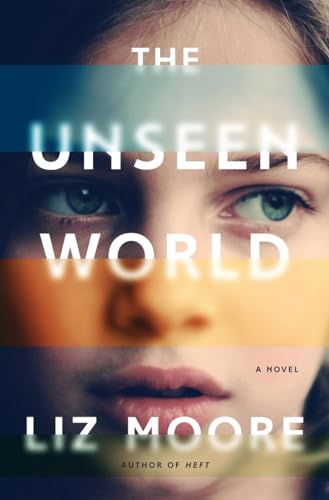Ada Sibelius is a child prodigy. Conceived by a surrogate and raised by her single father, David, she grows up in the local university's computer science lab where her father is a respected professor and researcher working on the artificial intelligence program ELIXIR, a language processing program. She is homeschooled by her father and her only friends are the graduate students at the lab and her father's close friend and colleague, Diana Liston. She adores her father, enjoys their intellectual fencing, and doesn't realize the extent of her unorthodox upbringing until the year she is twelve, when David starts showing signs of Alzheimer's. As David's condition deteriorates, Ada ultimately moves in with Liston and her sons and goes to school for the first time, having to learn what regular teenage life is like. Alternating with the story of David's decline and young Ada's sudden immersion in a "normal" life that is completely foreign to her is the story of adult Ada trying to solve the puzzle that David left her and uncover the myriad of secrets that bubble up as she tries to figure out who her father really was, not just to her, to his students, and to his pet project, but who he was in a wider sense. In searching for answers, Ada will also come to understand and know herself and others in her life better too.
This is a very slow moving novel and there's a lot of technical information that might cause the non-technical reader to stumble, especially early on as the story is just starting to build. But once the reader is invested in Ada, they will follow her in her journey, eager to understand the truth about David, wanting to know what he left her just as much as she does. This is very much a literary novel, an exploration into identity, how technology preserves or changes that identity, and the messiness and mistakes of human connection. The characters are not only smart, they are at least as interesting as the enigmas they all hope to solve. There are codes and puzzles woven throughout the novel, some obvious (trying to crack David's code), some less so (like Ada's puzzling out how to be a normal kid and have normal relationships) and smart readers will enjoy following the many trails to discovery and the ultimate unveiling at the end. There are touches of mystery and sci-fi combined with personal, human reality here that all come together in one masterfully done literary work.
Thanks to the publisher for sending me a copy of the book to review.







No comments:
Post a Comment
I have had to disable the anonymous comment option to cut down on the spam and I apologize to those of you for whom this makes commenting a chore. I hope you'll still opt to leave me your thoughts. I love to hear what you think, especially so I know I'm not just whistling into the wind here at my computer.